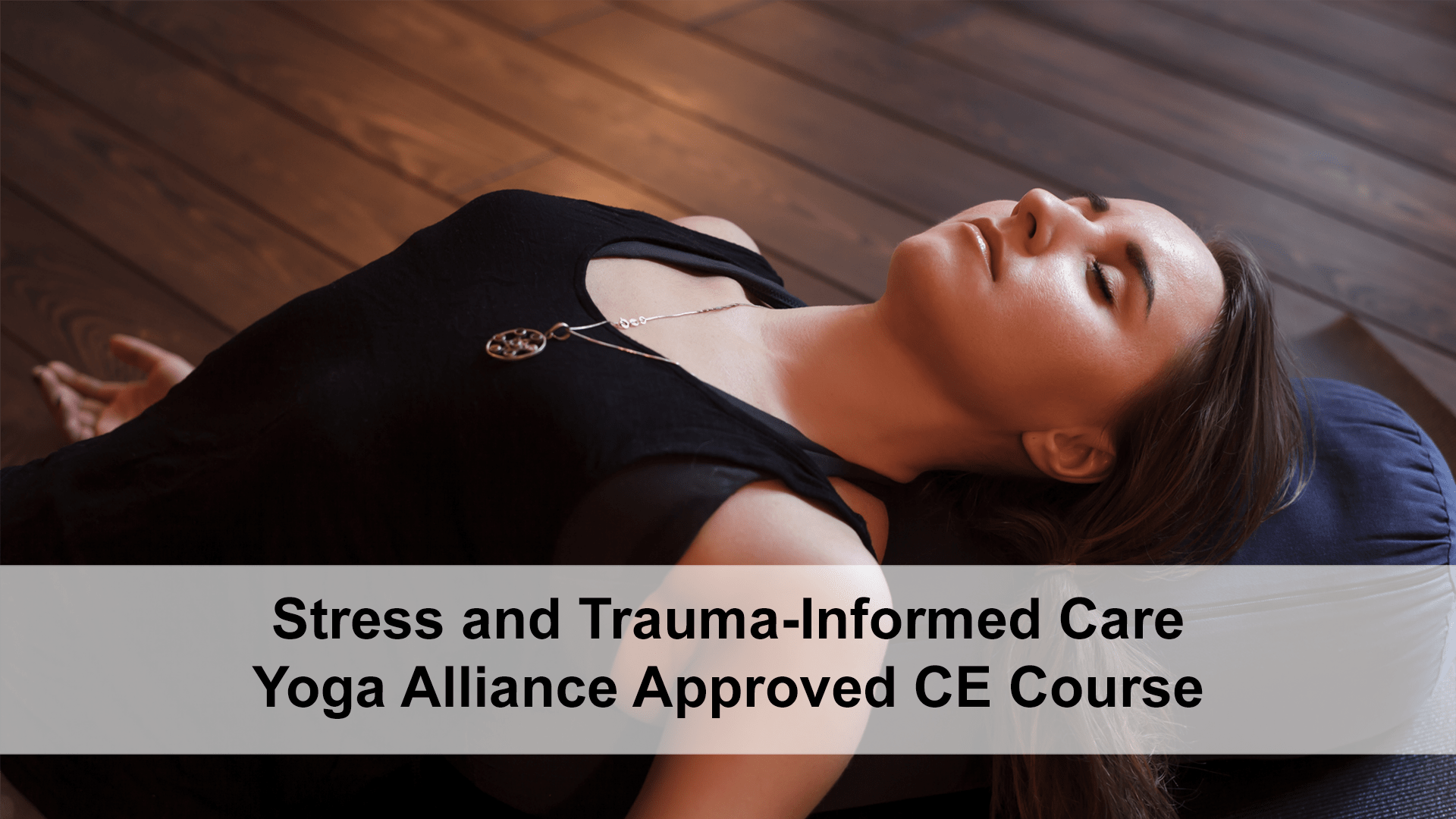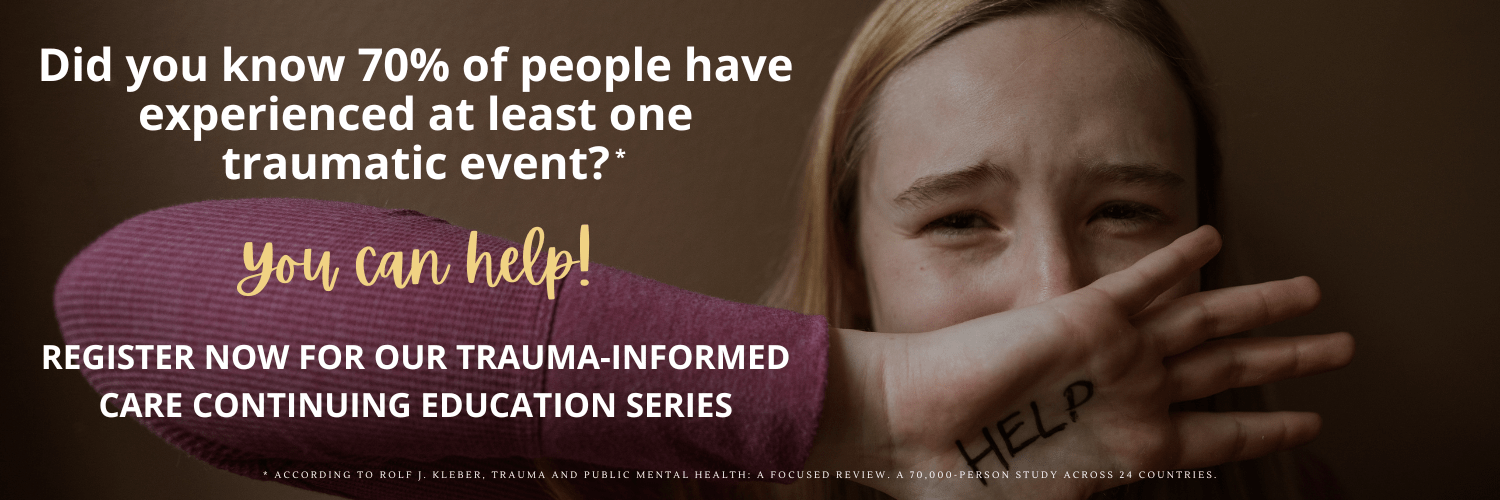
- This event has passed.
Stress and Trauma-Informed Care – CE Series
March 21, 2023 @ 5:30 pm - 8:30 pm MDT
CAN $399.00

Trauma-informed care is a strengths-based practice framework grounded in understanding and considering stress and trauma’s pervasive nature and impact. As a result, we promote an environment of recovery rather than practices that may inadvertently re-traumatize.
Adopting a trauma-informed approach to your practice is not accomplished through a particular technique or checklist. In other words, it is an ongoing process that takes our constant caring awareness, attention, and sensitivity.
Description
This introductory course will explore the theoretical underpinnings, neuroscience, and impact of stress and emotional and psychological trauma. And learn how to provide trauma-informed caring, compassionate, and empathetic services at a personal, practice, and organizational level.
Dates & Times
10 Week Series: We will meet via Zoom on Tuesdays, March 21st to May 30th, 2023, from 5:30–8:30 PM MST. (Convert to my time zone) * No class May 9th.
Cost
Early bird rate of $329 CDN until February 28th, 2023. $399 CDN thereafter.
This program is registered with the Yoga Alliance for 30 hours of YACEP Continuing Education Credits.
Why this course matters
Trauma doesn’t discriminate; it affects people of every race, age, ethnicity, and socioeconomic level. We define trauma as “anything that overwhelms an individual’s ability to cope.” Trauma can occur in a single isolated event or a series of events. A traumatic experience involves a threat to one’s physical or emotional well-being and can bring out feelings of terror, helplessness, and lack of control and power.
Traumatic experiences can alter an individual’s perception of themselves, their world, and the people around them. It can disrupt an individual’s biological, cognitive, and emotional functioning, as well as their identity, relationships, and social interactions.
As service providers, it is imperative that we implement care and services that follow the tenets and principles of Trauma-Informed Care.
In this course:
You will learn about several principles and tenets of Trauma-Informed Care. You will be challenged and inspired to provide the best care possible to those affected by the ravages of traumatic experiences. Upon completion of this course, you will be able to:
- define trauma.
- understand trauma’s impact on mental and physical health and our society.
- describe and understand the principles & tenets of Trauma-Informed Care.
- define and understand the benefits of evidence-based stress and trauma-informed practice reflected in the growing evidence
recognize the importance of responding to trauma disclosures appropriately. - understand the importance of managing vicarious trauma and compassion fatigue.
- understand the Adverse Child Experiences (ACE) Study and Attachment Theory.
- identify potential trauma triggers through the individual, practice, and organizational levels—specific to, but limited to, sharing somatic and embodied practices, such as yoga, meditation, and mindfulness practices, as well as teaching, coaching, and mentoring.
- modify techniques to engage with stress and trauma-informed lens.
- understand how to utilize embodied stress and trauma-informed practices in sessions, classes, and events to foster and cultivate self-compassion and self-regulation.
- modify teaching skills and engagement techniques to engage students and clients with a trauma-informed lens.
- understand how to share embodied trauma-informed movement, breath, meditation, and mindfulness practices designed to cultivate healthy coping and self-regulation skills.
- identify additional tools and resources for continued growth and education.
Our client-centered G.R.E.E.N.E.R Trauma-Informed Model © prepares you to create the trust and safe environment needed to support those with trauma and stress to feel safe and comfortable to explore their somatic experience, develop healthy coping skills, face the highs and lows of mental health, and ultimately recover.
While learning to care for the caregiver, adapt their approach for the client’s benefit, hold space for resistance, and work through challenging experiences without attachment to results.
You will discover the tools, knowledge, and expertise to assist clients with care that emphasizes physical, psychological, and emotional safety. While creating opportunities to rebuild autonomy, self-regulation, and empowerment.
Why this approach matters
When facing the challenges of stress and trauma, we need caring professionals in our court. Therefore, a stress and trauma-informed care approach includes learning to:
- Work with our clients and focus on helping them reach their recovery goals.
- Ethically support clients to explore their somatic experiences with supportive coping and self-regulation skills.
- Recognize and hold space for the emotional cycles and rollercoasters of shame, pride, resistance, acceptance, love, and self-loathing.
- Maintain your stability while being a witness to the darkness of stress and trauma with compassion and empathy.
- Provide a client-centered environment of safety that maintains and cultivates autonomy and agency.
What to expect
You will learn the tools, knowledge, and expertise to provide care that emphasizes practitioners’ and survivors’ physical, psychological, and emotional safety. Above all, the program supports you in creating opportunities for survivors to rebuild autonomy, emotional regulation, and resilience.
Cohort Model
Our live cohort model holds space for community support, sharing best practices, and facing industry challenges together—all with the supportive guidance of our founder and Yoga Therapist, Melanie Taylor.
Who is this course for?
This is an introductory course on Trauma-Informed Care. All can benefit from this course, especially those interested in understanding the short and long-term effects of emotional and psychological trauma.
This workshop is for yoga teachers, caregivers, holistic practitioners, teachers, community leaders, and community members interested in gaining the knowledge and skills necessary to support people with a stress and trauma-informed lens.
* Rolf J. Kleber, Trauma and Public Mental Health: A Focused Review. A 70,000-person study across 24 countries.
Details
- Date:
- March 21, 2023
- Time:
-
5:30 pm - 8:30 pm MDT
- Cost:
- CAN $399.00
- Event Category:
- YACEP Workshops
- Event Tags:
- ce, continuing education, cya, trauma informed, trauma-informed practice, trauma-informed training, trauma-informed yoga, yacep, Yoga, yoga alliance, ytt
